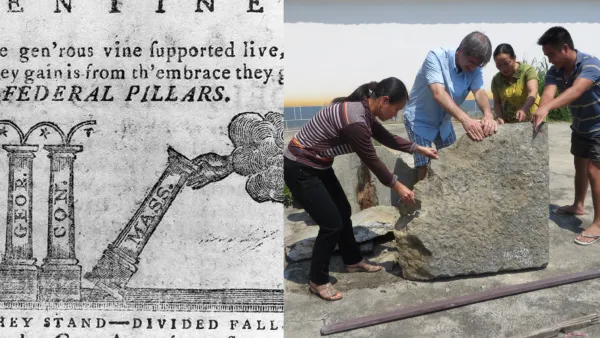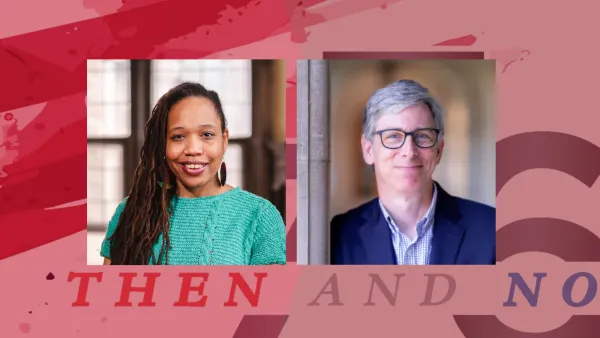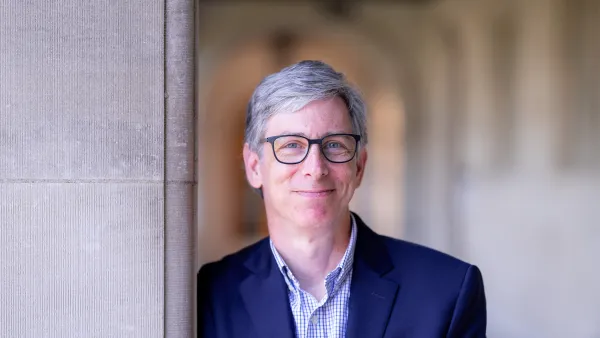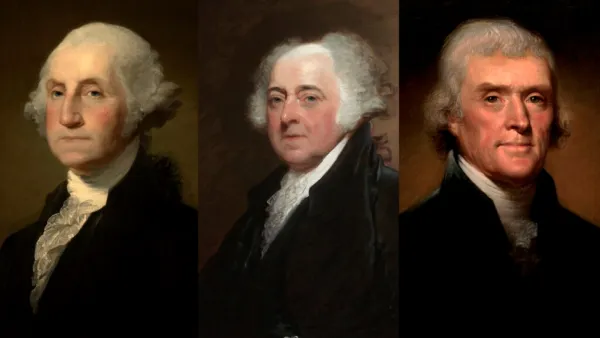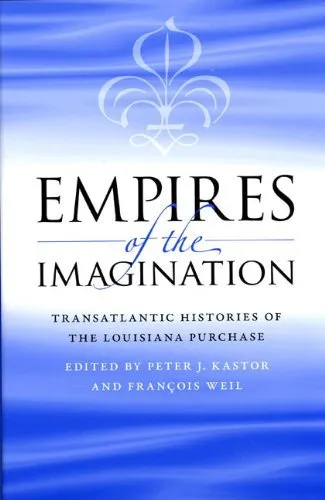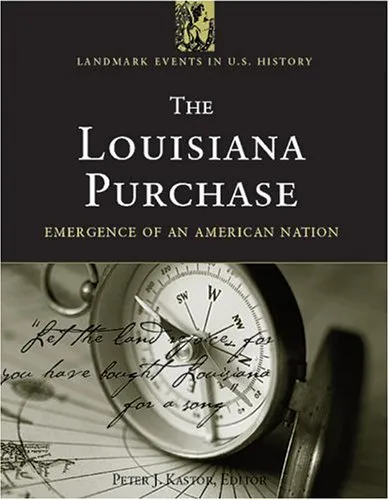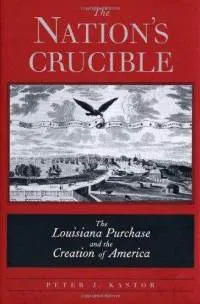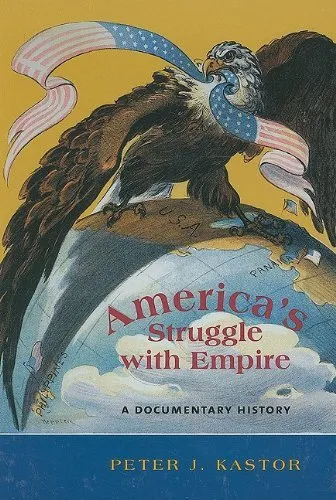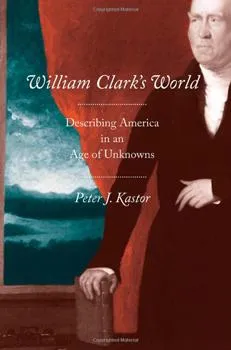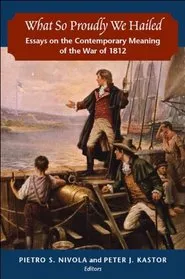Selected Publications
Current Projects
Creating a Federal Government, 1789-1829
Books
Washington’s Government: Statebuilding for a New Nation. Max Edling and Peter J. Kastor, eds. Charlottesville: University of Virginia Press, 2021. Co-editor and author of “Washington’s Workforce: Reconstructing the Federal Government at the Moment of Its Creation,” 57-85.
A French City in Colonial North America. Jay Gitlin, Peter J. Kastor, and Robert Morrissey, eds. Lincoln: University of Nebraska Press, 2021.
What So Proudly We Hailed: Essays on the Contemporary Meaning of the War of 1812. Pietro Nivola and Peter J. Kastor, eds. Washington: Brookings Institution Press, 2012. Co-editor for the volume and author for the essay entitled “The War over Federalism: The Constitutional Battles in the War of 1812,” 122-49.
William Clark's World: Describing America in an Age of Unknowns. New Haven: Yale University Press, 2011.
Editor. America's Struggle with Empire: A Documentary History. Washington: CQ Press, 2009.
Empires of the Imagination: Transatlantic Histories of the Louisiana Purchase. Peter J. Kastor and François Weil, eds. Jeffersonian America Series. Charlottesville: University of Virginia Press, 2009. Co-editor for the volume, co-author for the introduction, and author for the essay entitled “They Are All Frenchmen: Background and Nation in an Age of Transformation,” 239-267.
The Nation's Crucible: The Louisiana Purchase and the Creation of America. New Haven: Yale University Press, 2004.
The Louisiana Purchase: Emergence of an American Nation. Washington: Congressional Quarterly Press, 2002. Editor, author for introduction, and author for essay entitled "Dehahuit and the Question of Change in North America," 74-89.
Peer Reviewed Articles
"What are the Advantages of the Acquisition?': Inventing Expansion in the Early American Republic." American Quarterly 60 (2008): 1003-35.
"Sacagawea's 'Cold': Pregnancy and the Written Record of The Lewis and Clark Expedition." Co-author with Conevery Valencius. The Bulletin of the History of Medicine 82 (2008): 276-309.
"'Young Men and Strangers': Institutions, Collaborations, and Conflicts in Territorial Louisiana." The Journal of the West 43 (2004): 23-32.
"'Motives of Peculiar Urgency': Local Diplomacy in Louisiana, 1803-1821." The William and Mary Quarterly 3d. ser., 58 (2001): 819-48.
"'Equitable Rights and Privileges': The Divided Loyalties of Washington County, Virginia, During the Franklin Separatist Crisis." The Virginia Magazine of History and Biography 105 (1997): 193-226.
"Toward 'The Maritime War Only': The Question of Naval Mobilization, 1811-1812." The Journal of Military History 61 (1997): 455-80.
Essays and Book Sections
“The Multinational History of Missouri Statehood and the Reimagining of North American Polities.” In A Firebell in the Past: The Missouri Crisis at 200, Jeffrey L. Pasley and John Craig Hammond, eds. Columbia: University of Missouri Press, 2021, Vol. 2.
"Mapping the Urban Frontier and Losing Frontier Cities." In Frontier Cities: Encounters at the Crossroads of Empire. Adam Arenson, Barbara Berglund, and Jay Gitlin, eds. Philadelphia: University of Pennsylvania Press, 2012: 165-89, 2013.
"The Many Wests of Thomas Jefferson." In Seeing Jefferson Anew: In His Time and Ours. John M. Boles and Randal L. Hall, eds. Charlottesville: University of Virginia Press: University of Virginia Press, 2010: 66-102.
"'Adapted to its Present System of Government': Legal Change, National Reorganization, and the Louisiana Civil Law Digest." Tulane European & Civil Law Forum, 24, (2009): 137-159.
"Writing a History for Exploration: What Became of Thomas Freeman and Peter Custis?" In Freeman and Custis Red River Expedition of 1806: Two Hundred Years Later. Lawrence M. Hardy, ed. Bulletin of the Museum of Life Sciences XIV, Louisiana State University in Shreveport, 2008: 325-44.
"Guardians and Gatekeepers: Lewis and Clark and the Louisiana Purchase." In Finding Lewis & Clark: Old Trails, New Directions. James Ronda and Nancy Tystad Koupal, eds. Pierre: South Dakota State Historical Society, 2004: 25-44.
"An Identity by Any Other Name: Attachments in an Age of Expansion." In The Louisiana Purchase and its Peoples: Perspectives from the New Orleans Conference. Paul E. Hoffman, ed. Lafayette: Louisiana Historical Society, 2004: 161-170.
"'Louisiana is Ours!': The Louisiana Purchase and the New Problems in American Foreign Policy, 1803-1815." Selected Papers from the Consortium on Revolutionary Europe, Kyle O. Eidahl, Donald H. Howard, and John Severn, eds. Tallahassee: Florida State University Press, 1998: 280-8.
In the Media
Selected Op-Eds and Essays
- “When presidents would send handwritten lists of their nominees to the Senate, things were a lot different,” The Conversation, 25 January 2025.
- “Even fictional presidents don’t look like Kamala Harris − although Black men and white women have been represented in the Oval Office,” The Conversation, 13August 2024.
- “Hunter Biden is the latest presidential child to stain a White House reputation − but others have shined it up,” The Conversation, September 14, 2024.
- “Marriage in the White House,” The Common Reader, 19 November 2021.
- "Presidential Transitions, New Traditions" (with Joey Vettiankal), Washington University Center for the Humanities, 14 October 2020.
- "These Washington University Faculty Had Rejected Online Classes--Until Coronavirus. Here's How They Made the Switch", Washington Post, 18 June 2020
Selected Documentaries and TV Programs
Selected Interviews, Podcasts, and Lectures
- St. Louis on the Air, St. Louis Public Radio.
- The Chris & Amy Show, KMOX.
- Napoleonic Wars Podcast.
- Napoleonic Quarterly Podcast.
- Inventing the Presidency Podcast.
- American Democracy Lab Podcast.
- Lectures in History, C-SPAN, November 19, 2020 and October 18, 2017.
- PBS News Hour, April 14, 2020.
- “Oklahoma, The West, and the World,” University of Oklahoma Teach-In, March 9, 2015.
Fellowships and Grants
Summer Faculty Research Grant, Washington University, 2015.
Innovation in the Classroom Grant, Washington University, 2014.
Digital Innovation Fellowship, American Council of Learned Societies (2013-2014).
Academic Venture Fund Grant (with Pietro Nivola), joint collaboration between Washington University and the Brookings Institution, 2011-2012.
Academic Venture Fund Grant (with Pietro Nivola), joint collaboration between Washington University and the Brookings Institution, 2011-2012.
Center Programs Grant (with Gayle Fritz), Washington University in St. Louis, 2007-2008.
Faculty Research Grant, Washington University in St. Louis, 2007.
Faculty Fellow, Washington University Center for the Humanities, 2006.
Archibald Hanna, Jr., Fellow, Beinecke Rare Book and Manuscript Library, Yale University, 2005-2006.
Fellowship in the History of Cartography, The Newberry Library, 2005-2006.
Faculty Research Grant, Weidenbaum Center on the Government, Policy, and Political Economy, Washington University in St. Louis, 2004-2005.
Society of the Cincinnati Research Fellowship, 1993.
DuPont Fellowship, 1992-93.
Awards and Prizes
Margaret W. Rossiter History of Women in Science Prize (co-recipient with Conevery Bolton Valencius), Awarded by the History of Science Society for the article "Sacagawea's 'Cold': Pregnancy and the Written Record of The Lewis and Clark Expedition," 2012.
Emerson Excellence in Teaching Award, 2011.
Honorable Mention, Single Volume Reference/Humanities & Social Sciences, Association of American Publishers, for America's Struggle with Empire: A Documentary History, 2011.
Kemper and Leila Williams Book Prize, Louisiana Historical Association/Historic New Orleans Collection, for The Nation's Crucible, 2005.
Caroline Bancroft Western History Prize honor book, sponsored by the Denver Public Library recognizing outstanding contributions to Western history, for The Nation's Crucible, 2005.
ArtSci Council Faculty Award, Washington University in St. Louis, 2002 and 2004.
Choice, Outstanding Academic Book Selection for The Louisiana Purchase: Emergence of an American Nation, 2003.
Arts & Sciences Freshman Advisor of the Year, Washington University in St. Louis, 2002.
Phi Alpha Theta Advisor Award, Washington University in St. Louis, 2001.
C. Coleman McGehee Prize, Virginia Historical Society, 1998.
Recent Courses
"Americans and Their Presidents," American Culture Studies Graduate Program, Washington University in St. Louis, Spring 2008-Present.
"Proseminar: Introduction to Graduate Study of American History to 1865," Department of History, Washington University in St. Louis, Fall 2007-Present.
"Freedom, Citizenship, and the Making of American Life," Department of History, Washington University in St. Louis, Fall 2006-Present.
"Lewis and Clark and the Mantle of Accuracy," American Culture Studies Graduate Program, Washington University in St. Louis, Fall 2004.
"American Culture: Traditions, Methods, Visions," American Culture Studies Program, Washington University in St. Louis, Spring 2002-present.
"Sophomore Research in American Culture Studies," American Culture Studies Program, Washington University in St. Louis, Fall 2000-present.
"Graduate Colloquium in American Culture Studies," American Culture Studies Program, Washington University in St. Louis, Summer 2000.
"The American Frontier, 1776-1848," Department of History, Washington University in St. Louis, Spring 1999-present.
"Lewis and Clark and the American Challenge," American Culture Studies Program, Washington University in St. Louis, Fall 1998-2003.

